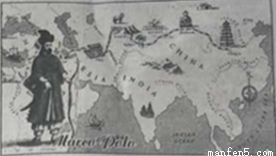

| �꼶 | ���пγ� | �꼶 | ���пγ� |
| ��һ | ��һ��ѿγ��Ƽ��� | ��һ | ��һ��ѿγ��Ƽ��� |
| �߶� | �߶���ѿγ��Ƽ��� | ���� | ������ѿγ��Ƽ��� |
| ���� | ������ѿγ��Ƽ��� | ���� | ������ѿγ��Ƽ��� |
��Ŀ������Ӣ�� ��Դ������ʡ������2017-2018ѧ�����꼶��ѧ����ĩ����Ӣ���Ծ� ���ͣ��������
Jack is ten years old this year. He is in Grade Three. He doesn't study hard _______school. But he thinks he is the cleverest(�������) _______ in his class. And he thinks he is very good at math. One afternoon Jack goes home after school. He feels very _______ .So he says to his _______ ,"Mum, I am very hungry. Can I have some _______ to eat? ��Dinner is not ready now. But there are _______ apples on the plate. You can _______ them first, "says his mother. When he sees the two apples, Jack says, "Mum, I have three _______ now. Look! This is the first one, and this is the second one. One and two _______ three. I am very clever. " ��Yes, you are very clever���� says his mother. "Now give me the first apple. Your father will eat the________one. And you eat the third one.
1.A. with B. to C. for D. at
2.A. student B. teacher C. son D. daughter
3.A. angry B. happy C. hungry D. boring
4.A. father B. mother C. brother D. friend
5.A. food B. water C. milk D. orange
6.A. three B. two C. four D. six
7.A. buy B. cut C. eat D. drink
8.A. apples B. bananas C. pears D. drink
9.A. has B. are C. is D. does
10.A. first B. second C. third D. fourth
 1.D
2.A
3.C
4.B
5.A
6.B
7.C
8.A
9.C
10.B
��������
���Ľ����˽ܿ���ѧ��Ŭ��ѧϰ��ȴ��Ϊ�Լ��ǰ����������ѧ������һ������ؼң��dz����������������������������ƻ������˵�����ǵ�һ��������ǵڶ�����һ�Ӷ�����������������˵��������ҵ�һ��ƻ�����㸸�׳Եڶ���ƻ��������Ե������ɡ���
1....
1.D
2.A
3.C
4.B
5.A
6.B
7.C
8.A
9.C
10.B
��������
���Ľ����˽ܿ���ѧ��Ŭ��ѧϰ��ȴ��Ϊ�Լ��ǰ����������ѧ������һ������ؼң��dz����������������������������ƻ������˵�����ǵ�һ��������ǵڶ�����һ�Ӷ�����������������˵��������ҵ�һ��ƻ�����㸸�׳Եڶ���ƻ��������Ե������ɡ���
1....�鿴�𰸺ͽ���>>
��Ŀ������Ӣ�� ��Դ��ɽ��ʡ��̨��2018���п�Ӣ���Ծ� ���ͣ���Ϣ����

Marco Polo was born in Italy in 1254. When he was 17, he travelled along the Silk Road with his father, who wanted to trade with the Chinese. Finally, they arrived in Beijing. They were guests at the Emperor's Palace Marco was very clever and could speak four languages. The Emperor was impressed by him and they became friends. He asked Marco to serve in his court (����) and sent him to do many important jobs all over the country.
Marco was amazed by how beautiful China was. He was impressed by Beijing and the Emperor's Palace, especial the Summer Palace which was described as "The greatest palace that I��ve ever seen". The walls were covered with gold and silver and the hall was so big that it could easily hold 6,000 people for dinner.
Marco was also attracted (����) by the inventions and developments in China which couldn't be found in Europe at that time. Marco was surprised to see Chinese people using paper money in the markets. In Europe, people paid for goods(����) with gold and silver. He could not understand how people paid for food and valuable things with paper! He was also puzzled by the black stones people used to burn to produce heat. The black stones were coal, but Marco had never seen coal before!
After he served the Emperor for 17 years. in 1291, Marco returned to Italy. He was a very wealthy man then. A writer wrote down all the stories that Marco told him in a book called The Description of the World, which became one of the best-selling books in Europe.
People enjoyed the book, but many of them thought that Marcos stories about China were too fantastic to be true. However, Marco always stood by his tales. Just before he died, aged 70, Marco was asked the question, ��Was it all true?�� And this was his answer, ��I have only told a half what I saw!��
����ݶ������ݣ�������б���
Marco Polo and China | |
Before arriving in China | In 1254, he was bon in Italy. At the age of 17, he travelled along the 1. with his father to trade with the Chinese. |
During his living in China | He made friends with the Emperor and served in the court. He did many2. around China. |
The beauty of China impressed him. | |
The 3. in China attracted Marco. ��Paper money was used to buy goods in the markets. ��Chinese people used4. to produce heat. | |
After returning to Italy | He became wealthy. A book written about his traveling experiences around the world sold well in Europe. |
The underlined sentence tells us that5.. |
 1.Silk Road
2.important jobs
3.inventions and developments
4.(the) black stones/ coal
5.it couldn��t be described in one book about the development of China/ Marco didn��t tell all the thing...
1.Silk Road
2.important jobs
3.inventions and developments
4.(the) black stones/ coal
5.it couldn��t be described in one book about the development of China/ Marco didn��t tell all the thing...�鿴�𰸺ͽ���>>
��Ŀ������Ӣ�� ��Դ������ʡ2018���п�Ӣ���Ծ� ���ͣ��������
���ϰ��ס���ʵ�������л�����Ĵ�ͳ���¡����мҷ硢���Ǽ�ѵ��������Ҫ�� ������ʥʹ������������������������Davidд��һ����ܡ��ҷ硢��ѵ�� ��Family Instructions�����š��뽫�䲹��������ÿ��һ�ʡ�
Dear David,
How is everything going? You asked me about Chinese family instructions in your last letter. In my opinion, they��re common beliefs ��������that family members should follow.
From a very young1., my parents told me to respect��������the old and care for the young. Many traditional stories tell us to be2.and keep our promises. When people are3.trouble, be there and help them. I was influenced by what I saw and heard. Gradually, I came to4. the importance of family instructions. I think we teenagers need to pass them on.
Are there any family instructions like5.in your country? Please write to me soon.
Love,
Li Hua
 1.age
2.honest/open/straight/frank/direct
3.in/having/meeting/facing
4.realize/know/understand
5.ours/mine/this/that/those/these
��������
���ϰ��������ǵĴ�ͳ���£���ƪ�������д��David��һ���ţ�����������Ҫ���������ǵĴ�ͳ�Ļ�...
1.age
2.honest/open/straight/frank/direct
3.in/having/meeting/facing
4.realize/know/understand
5.ours/mine/this/that/those/these
��������
���ϰ��������ǵĴ�ͳ���£���ƪ�������д��David��һ���ţ�����������Ҫ���������ǵĴ�ͳ�Ļ�...�鿴�𰸺ͽ���>>
��Ŀ������Ӣ�� ��Դ������ʡ̩����2017-2018ѧ�����꼶��ѧ����ĩ����Ӣ���Ծ����������� ���ͣ���ѡ��
Sam lives in a flat with _________ floors and he lives on the ________ floor.
A. six; six B. sixth; sixth C. six; sixth D. sixth; six
 C
��������
���⣺ɽķס��һ������Ĺ�Ԣ���ס�ڵ����㡣six�����ʣ���ʾ�������٣�sixth�����ʣ���ʾ˳��floorsΪ���ʸ�����ʽ��ǰ��Ҫ�û����ʱ�ʾ������floorΪ���ʵ�����ʽ��ǰ��ֻ����������sixth��ʾ������¥���ʴ�ΪC��
C
��������
���⣺ɽķס��һ������Ĺ�Ԣ���ס�ڵ����㡣six�����ʣ���ʾ�������٣�sixth�����ʣ���ʾ˳��floorsΪ���ʸ�����ʽ��ǰ��Ҫ�û����ʱ�ʾ������floorΪ���ʵ�����ʽ��ǰ��ֻ����������sixth��ʾ������¥���ʴ�ΪC���鿴�𰸺ͽ���>>
����ʡ������Υ���Ͳ�����Ϣ�ٱ�ƽ̨ | �����к���Ϣ�ٱ�ר�� | ����թƭ�ٱ�ר�� | ����ʷ���������к���Ϣ�ٱ�ר�� | ������Ȩ�ٱ�ר��
Υ���Ͳ�����Ϣ�ٱ��绰��027-86699610 �ٱ����䣺58377363@163.com